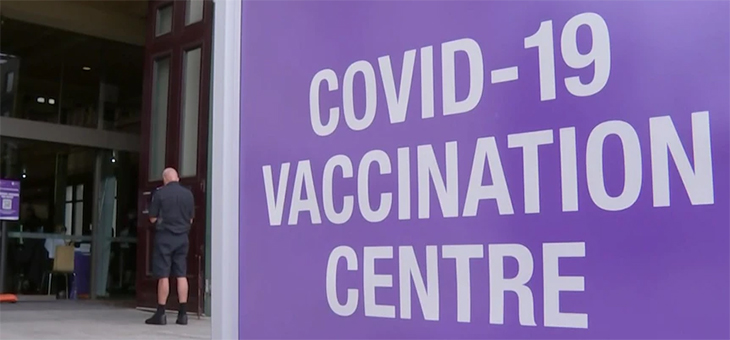Doctors have demanded the media be much more cautious in the way blood clot cases are reported in people who have received COVID-19 vaccines, warning public confidence in the program is being undermined.
They fear some reporting risks unnecessarily scaring vulnerable parts of the community.
Last night, federal health officials revealed they were investigating the death of a 48-year-old woman in New South Wales who is believed to have died from blood clots after receiving her shot.
But early tests indicated there was no conclusive link to the vaccine and in a statement last night, the Therapeutic Goods Administration (TGA) pointed out common blood clots occur in around 50 Australians every day.
“The blood clotting disorders being investigated in connection with the AstraZeneca COVID-19 vaccine are very rare and differ from common blood clots,” the statement said.
“[It] has been confirmed in only two cases out of over 700,000 people who have received the AstraZeneca vaccine in Australia.”
But some reporting of the case and other issues with the national vaccine rollout has alarmed some doctors and experts in misinformation.
Vice-president of the Australian Medical Association Chris Moy said elevating unconfirmed vaccine side effects or complications – without appropriate context – could have a devastating effect on public confidence.
“What we’re seeing at the moment, which is something we all feared, is that the media scrutiny – because of the heightened anxiety about the vaccines – is microscopic on every single thing that has gone on with the vaccine,” Dr Moy said.
“Whether or not it has anything to do with the vaccine.”
He said in many cases, conclusions were being drawn and shared by people with little or no expertise and warned the media would be partly responsible if unvaccinated Australians get seriously ill from COVID-19.
“The concern is that this over-analysis at the moment, without real knowledge, is essentially the media playing doctor,” he said.
“And it’s actually causing a material effect on vaccine confidence, which really shouldn’t be the role of the media.
“Particularly if they’re actually having negative effects when they are reporting things which ultimately have nothing to do with the vaccine at all.”
NSW Premier Gladys Berejiklian said she was yet to find out whether the death of the 48-year-old woman was linked to the AstraZeneca vaccine.
“We are waiting on federal authorities to let us know [and] until that time I think we should just wait for that advice,” she said.
“I think the majority of our citizens know the benefits of taking a vaccine. They also know the risks, as slight as it is.”
Ms Berejiklian, who has had her first dose of AstraZeneca, said anyone with concerns should speak with their GP.
“It is important for us to feel positive about the situation, although it is really difficult obviously when you hear about these potential issues [but] I’m confident about how safe the vaccine is. I wouldn’t have got it myself otherwise.”
Anti-vaccination groups ‘amplify’ sensational headlines
The AstraZeneca vaccine is no longer recommended for people under the age of 50 due to the extremely small risk of clots.
The government last week declared Pfizer would be the jab of choice for younger Australians and it said it has “secured” an extra 20 million doses, which are due to arrive in the last quarter of this year.
Chris Cooper from Reset Australia, a think tank that is running a campaign to stop vaccine misinformation, hoped the media would resist the temptation to run sensational headlines as the rollout continues.
“Although that might drive clicks, it also drives uncertainty about the vaccine,” he said.
“Anti-vaxxers will find the part of the story that reinforces their world view. They will amplify it on social media and if there’s not enough context in a story, it really fuels the misinformation machine.”
He warned vaccine hesitancy would not only come with health consequences for Australians but potentially derail attempts to return to a normal, pre-pandemic way of life.
“We’re seeing that vaccine hesitancy is rising and so we have to really think about how we mitigate the spread of that bad information,” he added.
The TGA said as part of its investigation into the NSW woman’s death, it was seeking further information, including clinical test results, from NSW Health.
Asked about the death at a press conference in the Pilbara, Prime Minister Scott Morrison said he would hold off commenting until medical authorities had finished investigating and urged others to take the same approach.
“I think there is a lot more to understand and learn about that issue and I would caution others in making conclusions on this at that point as well,” he said.
If it is confirmed the woman contracted blood clots linked to a COVID-19 vaccine, it would be the third such case in the nation since the rollout began.
Roughly 1.35 million vaccine doses have been administered in Australia to date.
 © 2020 Australian Broadcasting Corporation. All rights reserved.
© 2020 Australian Broadcasting Corporation. All rights reserved.
ABC Content Disclaimer

